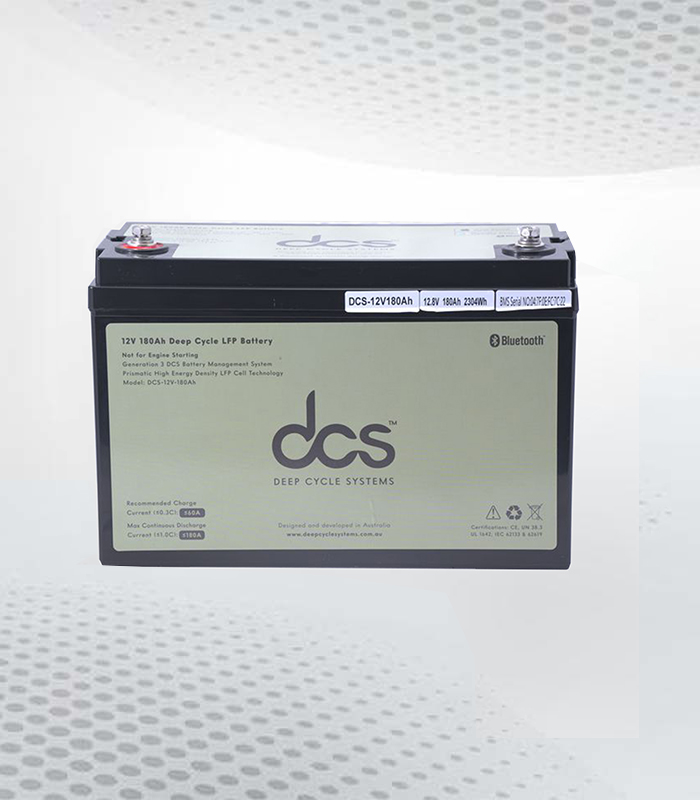The automotive industry is undergoing a significant transformation, driven by the increasing adoption of digital technologies. As manufacturers seek to stay competitive in an evolving market, the need for customized software solutions has never been greater. Custom software development for the automotive industry is playing a crucial role in this digital transformation, enabling manufacturers to optimize operations, enhance customer experiences, and leverage data-driven insights through Automotive Analytics. This article delves into how custom software is accelerating digital transformation for automotive manufacturers and the impact of Automotive Analytics on the industry.
The Need for Digital Transformation in the Automotive Industry
The automotive industry has traditionally been characterized by complex supply chains, high capital investments, and a focus on efficiency and scale. However, the landscape is changing rapidly with the advent of new technologies, changing consumer preferences, and increasing regulatory requirements. Digital transformation is no longer a choice but a necessity for automotive manufacturers to remain competitive.
Key drivers of digital transformation in the automotive industry include:
-
Evolving Consumer Expectations: Modern consumers demand personalized experiences, seamless digital interactions, and connected vehicles. Automotive manufacturers must leverage digital technologies to meet these expectations and differentiate themselves in the market.
-
Regulatory Compliance: Stricter regulations around emissions, safety, and data privacy are forcing manufacturers to adopt digital solutions that ensure compliance while optimizing operational efficiency.
-
Supply Chain Optimization: The global nature of the automotive supply chain necessitates the adoption of digital technologies to enhance visibility, reduce lead times, and mitigate risks.
-
Sustainability Initiatives: The push towards sustainability is driving the adoption of digital solutions that reduce waste, optimize resource utilization, and promote the circular economy.
-
Technological Advancements: The rise of artificial intelligence (AI), machine learning (ML), the Internet of Things (IoT), and cloud computing is enabling new possibilities for innovation and efficiency in the automotive industry.
Given these drivers, digital transformation is essential for automotive manufacturers to thrive in the modern landscape. Custom software development plays a pivotal role in this transformation by providing tailored solutions that address the unique challenges and opportunities within the industry.
Custom Software Development: A Catalyst for Digital Transformation
Custom software development for automotive industry involves creating software solutions specifically designed to meet the unique needs and requirements of automotive manufacturers. Unlike off-the-shelf software, custom solutions are tailored to the organization’s processes, systems, and goals, offering a higher degree of flexibility, scalability, and integration.
Here’s how custom software development is accelerating digital transformation in the automotive industry:
-
Enhanced Operational Efficiency: Custom software solutions streamline and automate various operational processes, from production planning and inventory management to quality control and logistics. By integrating data from multiple sources and providing real-time insights, these solutions enable manufacturers to optimize workflows, reduce downtime, and improve overall efficiency.
For example, a custom Manufacturing Execution System (MES) can be designed to monitor production lines in real time, identify bottlenecks, and adjust workflows to ensure optimal output. Similarly, custom software can automate inventory management, reducing the risk of stockouts or overstocking while ensuring that the right parts are available when needed.
-
Improved Supply Chain Management: The automotive supply chain is highly complex, involving multiple suppliers, manufacturers, and distributors across the globe. Custom software solutions enable manufacturers to gain better visibility and control over their supply chains, from procurement to delivery.
Custom software can integrate with existing Enterprise Resource Planning (ERP) systems to provide real-time data on inventory levels, supplier performance, and transportation logistics. This integration allows manufacturers to make data-driven decisions, reduce lead times, and respond more quickly to disruptions in the supply chain.
-
Personalized Customer Experiences: In today’s competitive market, providing a personalized customer experience is essential for automotive manufacturers. Custom software solutions enable manufacturers to collect and analyze customer data, allowing them to tailor their products and services to individual preferences.
For instance, custom software can be used to develop a customer relationship management (CRM) system that tracks customer interactions, preferences, and purchase history. This data can then be used to offer personalized recommendations, targeted marketing campaigns, and enhanced customer support.
-
Integration of Advanced Technologies: The integration of advanced technologies such as AI, IoT, and machine learning is a key aspect of digital transformation in the automotive industry. Custom software development allows manufacturers to incorporate these technologies into their operations and products seamlessly.
For example, custom software can be developed to integrate IoT sensors into vehicles, enabling real-time monitoring of vehicle performance and predictive maintenance. AI-powered analytics can be used to analyze data from these sensors, providing insights that help manufacturers improve vehicle design and performance.
-
Enhanced Collaboration and Communication: Effective collaboration and communication are critical for the success of any automotive manufacturing operation. Custom software solutions facilitate seamless communication and collaboration between different departments, suppliers, and partners.
For instance, custom project management software can be developed to enable cross-functional teams to collaborate on product development, track progress, and share information in real time. This enhanced collaboration leads to faster decision-making, improved product quality, and reduced time to market.
-
Data-Driven Decision Making: The ability to make data-driven decisions is a key advantage of digital transformation. Custom software solutions provide automotive manufacturers with the tools to collect, analyze, and visualize data, enabling them to make informed decisions that drive business growth.
For example, a custom analytics platform can be developed to aggregate data from various sources, such as production lines, supply chains, and customer interactions. This platform can then use AI and machine learning algorithms to identify trends, predict future demand, and optimize production schedules.
The Role of Automotive Analytics in Custom Software Development
Automotive Analytics is a critical component of digital transformation in the automotive industry. By leveraging data analytics, manufacturers can gain valuable insights into various aspects of their operations, from production efficiency to customer behavior. Custom software solutions that incorporate Automotive Analytics enable manufacturers to harness the power of data to drive innovation and improve performance.
Here’s how Automotive Analytics is transforming the automotive industry through custom software development:
-
Predictive Maintenance: One of the most significant applications of Automotive Analytics is predictive maintenance. By analyzing data from sensors and connected vehicles, manufacturers can predict when a component is likely to fail and schedule maintenance before a breakdown occurs. This proactive approach reduces downtime, lowers maintenance costs, and improves vehicle reliability.
Custom software solutions can be developed to collect and analyze data from various sources, including IoT sensors, telematics systems, and maintenance records. This data can then be used to create predictive models that identify potential issues and recommend maintenance actions.
-
Quality Control and Defect Detection: Automotive manufacturers must maintain high levels of quality to meet customer expectations and comply with regulations. Automotive Analytics enables manufacturers to monitor production processes in real time, identify defects, and take corrective actions before defective products reach the market.
Custom software can be developed to integrate with existing quality control systems, providing real-time data on production quality and defect rates. Advanced analytics algorithms can analyze this data to identify patterns and root causes of defects, allowing manufacturers to implement targeted improvements.
-
Supply Chain Optimization: Automotive Analytics plays a crucial role in optimizing supply chain operations. By analyzing data from suppliers, production lines, and logistics providers, manufacturers can identify inefficiencies, reduce lead times, and improve overall supply chain performance.
Custom software solutions that incorporate Automotive Analytics can provide real-time visibility into the supply chain, enabling manufacturers to track shipments, monitor supplier performance, and optimize inventory levels. These insights lead to more efficient supply chain operations and better decision-making.
-
Customer Insights and Personalization: Understanding customer preferences and behavior is essential for automotive manufacturers to stay competitive. Automotive Analytics enables manufacturers to analyze customer data and gain insights into purchasing patterns, preferences, and trends.
Custom software solutions can be developed to collect and analyze customer data from various sources, such as sales records, social media, and customer feedback. These insights can then be used to develop personalized marketing campaigns, product recommendations, and customer support strategies.
-
Product Development and Innovation: Automotive Analytics is also driving innovation in product development. By analyzing data from connected vehicles, customer feedback, and market trends, manufacturers can identify opportunities for new products and features.
Custom software solutions can be developed to support the product development process, from concept to launch. These solutions can integrate data from various sources, such as design software, prototyping tools, and market research, enabling manufacturers to make data-driven decisions and accelerate time to market.
Case Studies: Custom Software Driving Digital Transformation
To illustrate the impact of custom software development on digital transformation in the automotive industry, let’s explore a few case studies:
-
Ford Motor Company: Ford has been at the forefront of digital transformation in the automotive industry. The company has developed custom software solutions to enhance various aspects of its operations, from production planning to customer engagement.
One notable example is Ford’s use of custom software to develop its FordPass app, which provides customers with a range of connected vehicle services, such as remote start, vehicle health monitoring, and parking assistance. By leveraging Automotive Analytics, Ford can offer personalized experiences to its customers and improve vehicle performance through real-time data analysis.
-
BMW Group: BMW has invested heavily in digital transformation, with a focus on leveraging custom software and Automotive Analytics to optimize production processes and enhance the customer experience.
BMW’s custom software solutions include its predictive maintenance platform, which uses data from connected vehicles to predict component failures and schedule maintenance. This approach has significantly reduced downtime and improved vehicle reliability. Additionally, BMW uses Automotive Analytics to analyze customer data and develop personalized marketing campaigns that resonate with its target audience.
-
Tesla, Inc.: Tesla is known for its innovative approach to automotive manufacturing and its extensive use of custom software and Automotive Analytics. The company has developed custom software solutions to manage its production processes, optimize supply chain operations, and enhance the customer experience.
The Future of Custom Software Development in the Automotive Industry
As the automotive industry continues to evolve, the role of custom software development will become increasingly critical in driving digital transformation. Here are some emerging trends and future possibilities:
-
Integration of Autonomous Vehicles: The development of autonomous vehicles presents new challenges and opportunities for custom software development. Manufacturers will need to develop sophisticated software solutions that can process vast amounts of data from sensors, cameras, and other sources to enable safe and reliable autonomous driving. Custom software will also be essential in integrating these vehicles with existing transportation infrastructure and managing the complex logistics of autonomous fleets.
-
Expansion of Connected Vehicle Ecosystems: The growing ecosystem of connected vehicles will require custom software solutions that can manage and analyze the massive amounts of data generated by these vehicles. This data will be used to enhance vehicle performance, improve safety, and create new revenue streams through services such as vehicle-to-everything (V2X) communication, predictive maintenance, and personalized infotainment.
-
Sustainability and Green Technologies: As the automotive industry shifts towards sustainability, custom software will play a crucial role in developing and managing green technologies such as electric vehicles (EVs), hydrogen fuel cells, and energy-efficient manufacturing processes. Custom software solutions will be needed to optimize battery management systems, integrate renewable energy sources into manufacturing operations, and reduce the environmental impact of production and logistics.
-
Advanced Automotive Analytics: The future of Automotive Analytics will involve even more sophisticated data analysis techniques, such as deep learning, natural language processing (NLP), and advanced predictive modeling. These technologies will enable manufacturers to gain deeper insights into customer behavior, market trends, and vehicle performance, leading to more targeted product development, marketing strategies, and operational improvements.
-
Customization and Personalization: As consumer demand for personalized experiences grows, automotive manufacturers will increasingly rely on custom software to deliver tailored products and services. This trend will involve the development of software solutions that allow customers to customize their vehicles, from design and features to performance and connectivity options. Custom software will also enable manufacturers to offer personalized after-sales services, such as maintenance plans and upgrade options.
Challenges and Considerations in Custom Software Development
While custom software development offers significant advantages for automotive manufacturers, it also presents several challenges and considerations that must be addressed:
-
Cost and Resource Allocation: Developing custom software can be resource-intensive, requiring significant investments in time, money, and expertise. Manufacturers must carefully consider the costs and benefits of custom software development and ensure that they have the necessary resources and skills to execute their projects successfully.
-
Integration with Legacy Systems: Many automotive manufacturers rely on legacy systems that may not be easily integrated with new custom software solutions. Ensuring seamless integration between new and existing systems is essential to avoid disruptions in operations and maximize the benefits of digital transformation.
-
Data Security and Privacy: As custom software solutions increasingly involve the collection and analysis of sensitive data, manufacturers must prioritize data security and privacy. This includes implementing robust cybersecurity measures, complying with data protection regulations, and ensuring that customer data is handled responsibly.
-
Scalability and Flexibility: Custom software solutions must be designed with scalability and flexibility in mind to accommodate future growth and changes in the industry. Manufacturers should work with experienced software developers who can create solutions that can be easily adapted to evolving business needs and technological advancements.
-
User Adoption and Training: The successful implementation of custom software solutions requires buy-in from employees and other stakeholders. Manufacturers must invest in training and change management initiatives to ensure that users are comfortable with the new software and can fully leverage its capabilities.
Conclusion
Custom software development is a driving force behind the digital transformation of the automotive industry. By providing tailored solutions that address the unique challenges and opportunities of automotive manufacturing, custom software enables manufacturers to enhance operational efficiency, improve supply chain management, deliver personalized customer experiences, and integrate advanced technologies like Automotive Analytics.
As the automotive industry continues to evolve, the role of custom software will only become more critical. Manufacturers that embrace custom software development and leverage Automotive Analytics will be well-positioned to thrive in the competitive and rapidly changing automotive landscape. By investing in innovative software solutions, automotive manufacturers can accelerate their digital transformation journey, drive innovation, and meet the demands of the modern market.
4o




